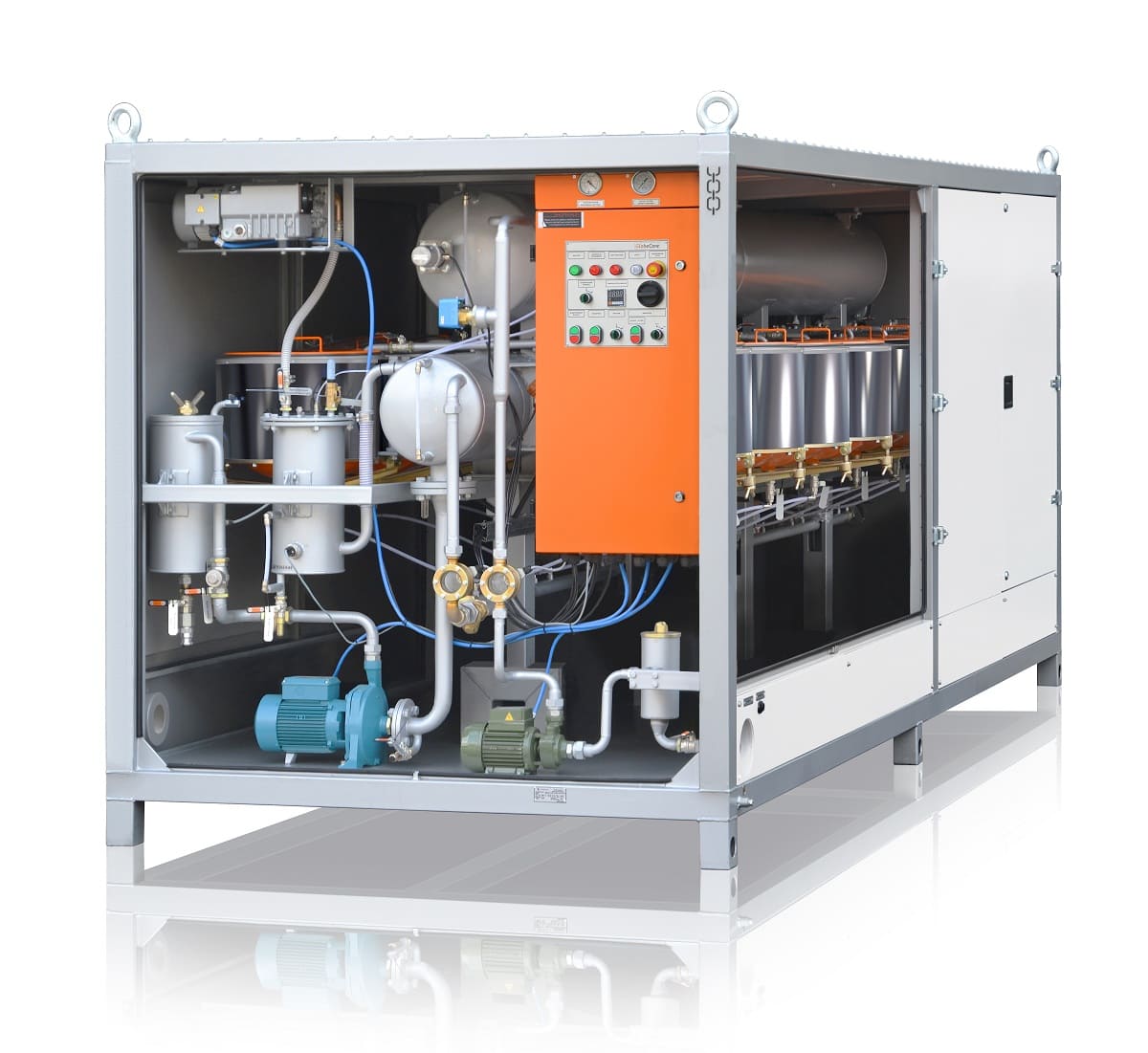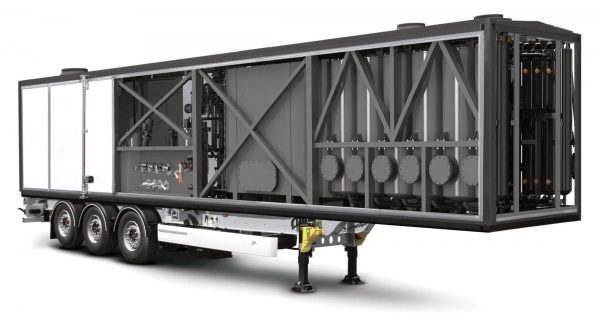This article is about oil reconditioning and the equipment required for this process. Let us first consider the basic types of modern industrial oil, their purposes and application.
Classification of oils in the industry
The main application of oils is lubrication of internal combustion engines. Depending on the purpose, the oils are classified as follows:
- diesel engine oil;
- gasoline engine oil;
- universal oil, which work equally well with both types of engines.
Gearbox oil is needed to lubricate friction components of vehicles and machinery. It is also commonly used in gears of industrial equipment. Hydraulic oil is used in hydraulic machinery and systems.
A separate class of oil includes turbine, electrical insulation and compressor oils. Turbine oil is used for lubrication and cooling of turbine bearings, compressor oil lubricates compressors, while electrical insulation oil separates energized components of electric equipment, cools hot parts and extinguishes arcs in switches. Another large oil class are industrial oils, which lubricate friction parts in industrial machinery, lathes, cutters, presses, rollers etc.
All of these oils have several common features. First, they are all made of crude oil. Second, additives are often used to improve oil performance. Third, all oils are subjected to harsh conditions, such as high temperatures and loads, contamination with solid impurities, water, gases etc. With time, the quality of of the oil decreases until the oil can not longer function. Using such oil is dangerous, since it can cause equipment failures and downtime, with the costs of repairs reaching hundreds of thousands and even millions of dollars. Used oil must be replaced with new or reconditioned. Changing the oil involves the costs of buying new oil and getting rid of the old oil. Oil reconditioning is a viable alternative. The process consumes only one third of the electric power required to make the same amount of oil from crude. One liter of lube oil is made from 67.2 liters of crude oil, and only 1.6 liters of used oil. With correct schedule of oil reconditioning, the lifetime of oil can be extended significantly.
Industrial oil reconditioning processes
Modern oil reconditioning methods are classified as physical, chemical and combined physical and chemical. The physical methods involve light impact on the contaminated oil, i.e. without deep chemical and structural changes. These methods include settling, centrifuging, electric and magnetic purification, filtration, heating, evaporation etc. It is possible to combine several physical methods to increase oil reconditioning efficiency.
Chemical methods are mostly based on interaction of the oil and other materials, changing the structure of the oil, such as the composition and concentration of ingredients. Chemicals method include acidic and alkaline treatment, hydrogenation etc.
Combined physical and chemical processes lie between the physical and chemical methods of oil reconditioning. These include coagulation, adsorption, ion exchange and extraction.
The selection of a specific oil processing method or methods depends on how the oil changed during use. In some cases heating and filtration may be sufficient, but combined physical and chemical methods are usually required. The chemical methods are expensive and require large and costly equipment and are mostly used at crude oil refineries.
GlobeCore oil reconditioning equipment
GlobeCore manufactures two types of oil reconditioning units: the UVR and the CMM-R. The CMM-R units are designed mostly for transformer oil reconditioning. This unit consists of sections for oil filtration and degassing, aging products removal, adsorbent reactivation and inhibitor injection. The CMM-R employs the entire range of modern, efficient oil reconditioning methods, but the final and the most important stage is adsorption. It is based on a special Fuller’s earth adsorbent with excellent absorptive capabilities to acidic substances and other oil aging products. Other adsorbents gradually lose their performance quality due to saturation with adsorbed substances. The more time passes, the less efficient the process becomes. This problem does not apply to the CMM-R. When Fuller’s earth is saturated, the adsorbent reactivation section comes into play. It restores the quality of Fuller’s earth, which can then be used for oil reconditioning again and again. Of course, adsorbent life is not unlimited, but several years of continuous operation is certainly better than regular problems with disposing of exhausted adsorbent and replacing it.
Another important feature of the CMM-R is the capability to recondition oil both in on and off line transformers. The possibility to work with an energized transformer depends on the condition of the transformer.
Another oil reconditioning unit is the UVR. This unit is more versatile in terms of the materials it can process. This unit can restore transformer, turbine and industrial oils, as well as heavy fuel oil, diesel fuel and gas condensate. Switching from one product to another does not require a complex readjustment process. The processing rate is the only thing that changes.
The main difference between the UVR and the CMM-T is the type of adsorbent used and the adsorbent reactivation capability. To reactivate the adsorbent used in the UVR, another special unit is needed, such as the CMM-RP.
GlobeCore also manufactures other units based on adsorption processes: the MCU and the ZP units. The MCU uses zeolite, and while it cannot ensure full oil reconditioning, it is used successfully for oil dehydration, raising their dielectric strength from 10 to 55-60 kV. The ZP unit can also be used with zeolite, but allow the use of silica gel as well. In this case, the oil’s acidity is reduced.
To sum up, oil reconditioning certainly has benefits over oil change, but saving on disposal and oil purchases, conserving natural resources, and improved reliability and efficiency of equipment. GlobeCore always has both stock and custom oil reconditioning equipment to offer our clients to solve a range of problems.


 Private: CMM-450/16U Transformer ...
Private: CMM-450/16U Transformer ... CMM-12R Oil Regeneration ...
CMM-12R Oil Regeneration ...